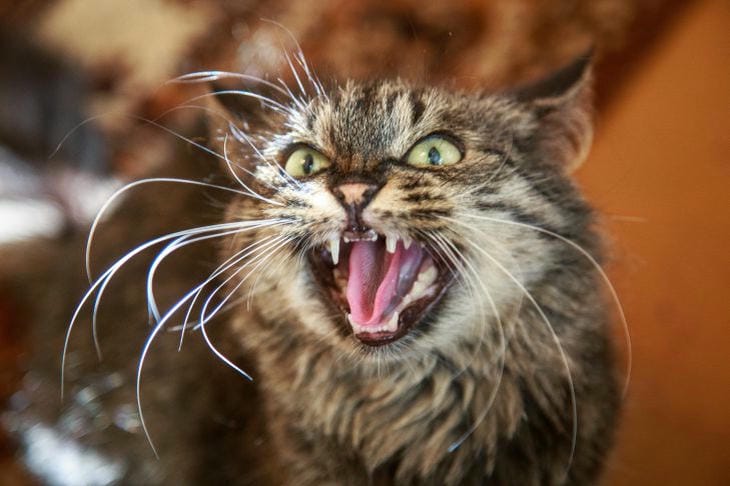Imagine: yesterday your furry pet was purring on your lap, and today she hisses and scratches when you try to pet her.
Such a sharp change in a cat's behavior can puzzle and upset any owner.
However, every "cat rebellion" has its own reasons, and sometimes it is not so difficult to figure them out.
Stress and changes in the environment
Cats are very conservative. Any changes in the house can cause them stress.
The arrival of a new family member, moving, renovations, or even rearranging furniture can throw the animal off track and provoke aggressive behavior.

Hormonal changes
Puberty, pregnancy, or hormonal changes can cause mood swings in cats.
This is especially evident in unsterilized animals during estrus or when they smell their partner.
Territorial disputes
The appearance of another animal in the house or even the smell of another cat on the owner's clothes can cause territorial aggression.
The cat begins to protect its space, showing hostility even towards family members.
Lack of socialization
Kittens that are not properly socialized at an early age may suddenly become aggressive when they reach a certain age.
They just don't know how to properly interact with people and other animals.
Fear and defensive reaction
A frightened cat can become aggressive. Loud sounds, unfamiliar people or animals, unexpected movements – all of this can frighten the pet and cause a defensive reaction in the form of aggression.
Play aggression
Young, energetic cats sometimes fail to control their hunting instincts during play. What starts as fun can develop into aggressive behavior if the pet is not taught how to play properly.
Overexcitement from affection
Some cats become aggressive after prolonged petting.
The reason lies in the increased sensitivity of the skin: pleasant sensations gradually turn into irritation, and the animal reacts with aggression.
Incorrect handling
Sometimes the cause of aggression lies in the actions of the owners themselves. Rough treatment, punishment or coercion to unwanted actions can cause a cat to react aggressively.
How to help an aggressive cat
First, it is worth ruling out medical causes by visiting a veterinarian. If everything is fine with health, you should analyze the changes in your pet's life and try to eliminate sources of stress. Patience, love and the right approach will help restore the previous warm relationship with your furry friend.








